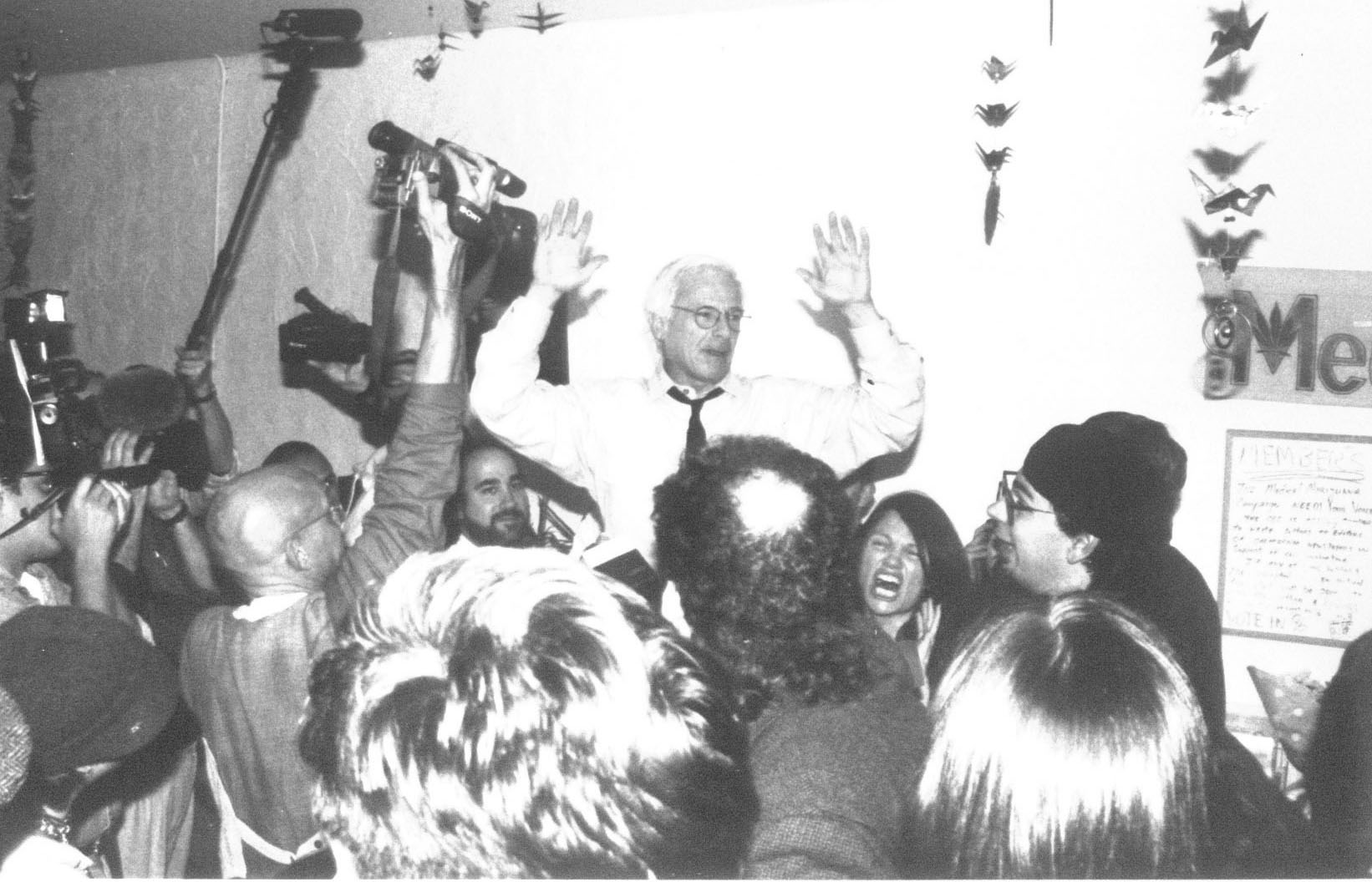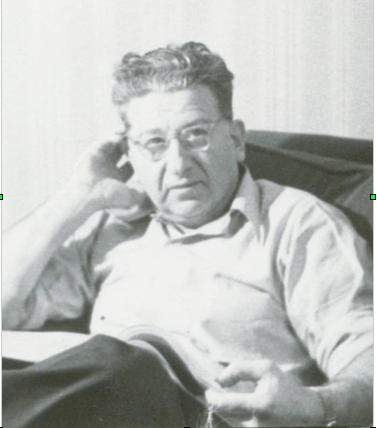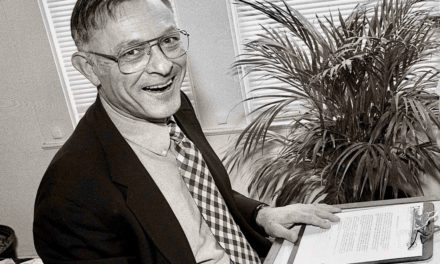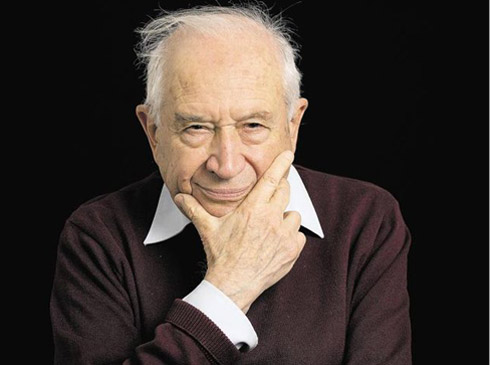When Prop 215 passed, many optimists thought it would mean the beginning of the end of a destructive, costly prohibition. They assumed the significance of the vote was unmistakable —the people of California had told the government to lay off citizens who were using marijuana for medical purposes. These optimists clung to the naive belief that the United States is a democracy and that laws created by the people will be implemented.
But the law created by the passage of Prop 215 was viewed by Attorney General Dan Lungren and the law enforcement lobby as a mistake by the people that they would have to rectify. Lungren instructed police and prosecutors to keep arresting and charging people who used marijuana, even if they had the approval of a physician.
Marijuana arrests in California actually increased in 1997, according to the Bureau of Criminal Statistics, to 57,667 —up for the sixth year in a row. Some doctors came to feel less willing to discuss marijuana as a treatment option with their patients, as they feared Lungren’s wrath and the attention of Janet Reno’s Department of Justice.
Nowadays marijuana is in the news every day. Many writers have made it their beat, many publications have made it their focus. But after Prop 215 passed, the story was just beginning to gain traction.
November 6 Attorney General Lungren sends a midnight fax to all California law enforcement officials, effective 12:01 a.m.. “The focus in cases involving potential marijuana violations should be on whether the medicinal use defense is factually applicablem” the A.G. advises. The cop on the beat is instructed to “ask early whether the person is taking medication, what medication for what condition, at which doctor’s direction, and the duration of treatment… whether the individual is a patient or caregiver. If he/she says patient, then ascertain name of doctor and caregiver. If caregiver, ascertain for whom, for how long, and on what basis.”
Also 11/6 Bill Zimmerman’s “Californians for Medical Rights” renames itself “Americans for Medical Rights” and announces plans to put medical marijuana initiatives on the ballot in five more states. The organization consists of four people, according to lobbyist Jim Gonzalez (who is proud of the fact).
Nov. 7 The Wo/Men’s Alliance for Medical Marijuana is granted non-profit status and an employer identification number by the California Secretary of State’s office. The articles of incorporation state that the Santa Cruz organization “will research, prepare and disseminate reports prepared for either the general public or the medical community based on information gathered directly from patients using marijuana to treat their medical needs. WAMM will also ensure that seriously ill patients have access at no charge to a safe supply of marijuana as prescribed by a physician through propagation of verdure in conjunction with community support. [“Verdure” is green-growing matter.]
Nov. 21 The Oakland Cannabis Buyers Club announces that its membership stands at “775 meticulously screened patients, and we are growing carefully.” Proprietor Jeff Jones thanks the city council for resolving that the “arrest of individuals involved with the medical use of marijuana shall be a low priority for the city of Oakland.” Protocols developed by the Oakland CBC are sent to clubs springing up around the state. Typically, a new member is required to produce a written medical diagnosis —signed by his or her doctor on stationery bearing a license number— recommending marijuana as a treatment. The club then calls the doctor’s office to confirm the diagnosis.
December 1 MedEx Santa Cruz is established “to provide in-home delivery of safe and affordable cannabis.”
Dec. 3 Attorney General Dan Lungren convenes a special “All Zones Meeting” of DAs, sheriffs, and police chiefs to lay out his approach to enforcement of Prop 215. “We think the narrowest interpretation is the most appropriate,” Lungren tells the law enforcers. “It would be our view that marijuana would not be available for acne, hangnails, stress or arthritis.” [This is a revealing slip of the tongue, since the initiative specifically sanctioned the use of marijuana in the treatment of arthritis.] The AG proclaims his strategy: to prosecute marijuana cases as vigorously as before; to put the burden of proof on defendants; and to require their physicians to testify in open court. Lungren says he will go to Washington to urge U.S. Attorney General Janet Reno to enforce the federal laws against marijuana use. San Francisco DA Terence Hallinan, the only open supporter of Prop 215, is denied a chance to address the session.
Dec. 4 Bill Zimmerman of Americans for Medical Rights tells the Sacramento Bee, “I think the attorney general is correct in arguing that the initiative should be interpreted narrowly.”
Also 12/4 In Almador County, District Attorney Steven Cilenti sends the following note to Judge Don Howard of the County Judicial Court: “It is respectfully requested you dismiss the charges on the above named defendant as defendant has medical reasons to possess marijuana.” The sheriff subsequently mails back the patient’s two grams.
Dec. 17 In Sonoma County The People of California vs. Alan Edward Martinez and Jason John Miller is heard in municipal court and the first attempt to get a marijuana case dismissed on the basis of Prop 215 is promptly rejected by Judge Mark Tansil. The Defendants Alan Martinez, 40 —a nurse’s aide who has epilepsy— and Jason Miller, 24, his primary caregiver, were arrested in August ’96 for cultivating marijuana in a windowsill planter box. Their lawyer, Bill Panzer, moves for an “in camera” hearing to keep confidential the identity of Martinez’s doctor. This, too, is rejected. “If the DEA withdraws a doctor’s right to prescribe,” Panzer argues, “they lose their malpractice insurance, their hospital privileges, and their ability to make an income.” Tansil rules: “The court can’t grant this witness special immunity. We must trust the system to deal fairly with this doctor and hope the doctor is a strong enough person to do the right thing.”
Also 12/17 In Alameda County a defense motion to move the case of People vs. Dennis Peron and Beth Moore to San Francisco —where 43 of the 44 alleged violations occurred— is denied by Judge Larry Goodman. The case stems from the Aug. 4 raid on the SF Cannabis Buyers Club, which led to indictment on possession and transportation charges by an Alameda County Grand jury. Peron’s lawyer J. David Nick argued that the grand jury should be reconvened to consider the “medical necessity” defense created by Prop 215, and that the raid itself was an improper attempt to influence the vote on 215.
Dec. 19 Dan Lungren, in Washington, D.C., calls on U.S. Justice Department officials to enforce the federal anti-marijuana laws… The San Francisco club stages a “‘We Forgive You Love-In” at the Bureau of Narcotics Enforcement office near Fisherman’s Wharf. Some 40 members sing Christmas carols “in the spirit of the holidays, to forgive those in the BNE for their acts of aggression against the sick and dying who have been harassed and prosecuted for medical marijuana use…”
See the pot-filled bong before us! Fa la la la la, la la la la
Makes you want to sing a chorus! Fa la la la la, la la la la…
Dec. 22 Thomas Constantine, head of the Drug Enforcement Administration, threatens, “We are going to take very, very serious action against” doctors recommending marijuana for medical purposes.
Dec. 30 Drug Czar Barry McCaffrey, Attorney General Janet Reno and Health & Human Services Secty Donna Shalala declare the Clinton Administration’s opposition to the medical use of marijuana at a widely covered press conference. They produce a chart entitled “Dr. Tod Mikuriya’s (215 Medical Advisor) Medical Uses of Marijuana.” Twenty-six conditions are listed. One is misspelled —”Migranes.”
McCaffrey has a soundbite: “This isn’t medicine, this is a Cheech and Chong show.” He warns that “a practitioner’s action of recommending [marijuana]… will lead to administrative action by the DEA to revoke the practitioner’s registration.” In other words, you put your license at risk if you approve cannabis use by a patient.
Mikuriya calls the chart “a crude dirty trick —the kind of disinformation the U.S. military put out during the Vietnam War, only in this case the ‘enemy’ is the people of California…” Lungren thanks McCaffrey and Reno for “quick action….” Doctors are alarmed. “The war on drugs has become the war on physicians,” comments Virginia Cafaro, MD, of San Francisco… Dennis Peron says, “Good publicity for Cheech and Chong.”






